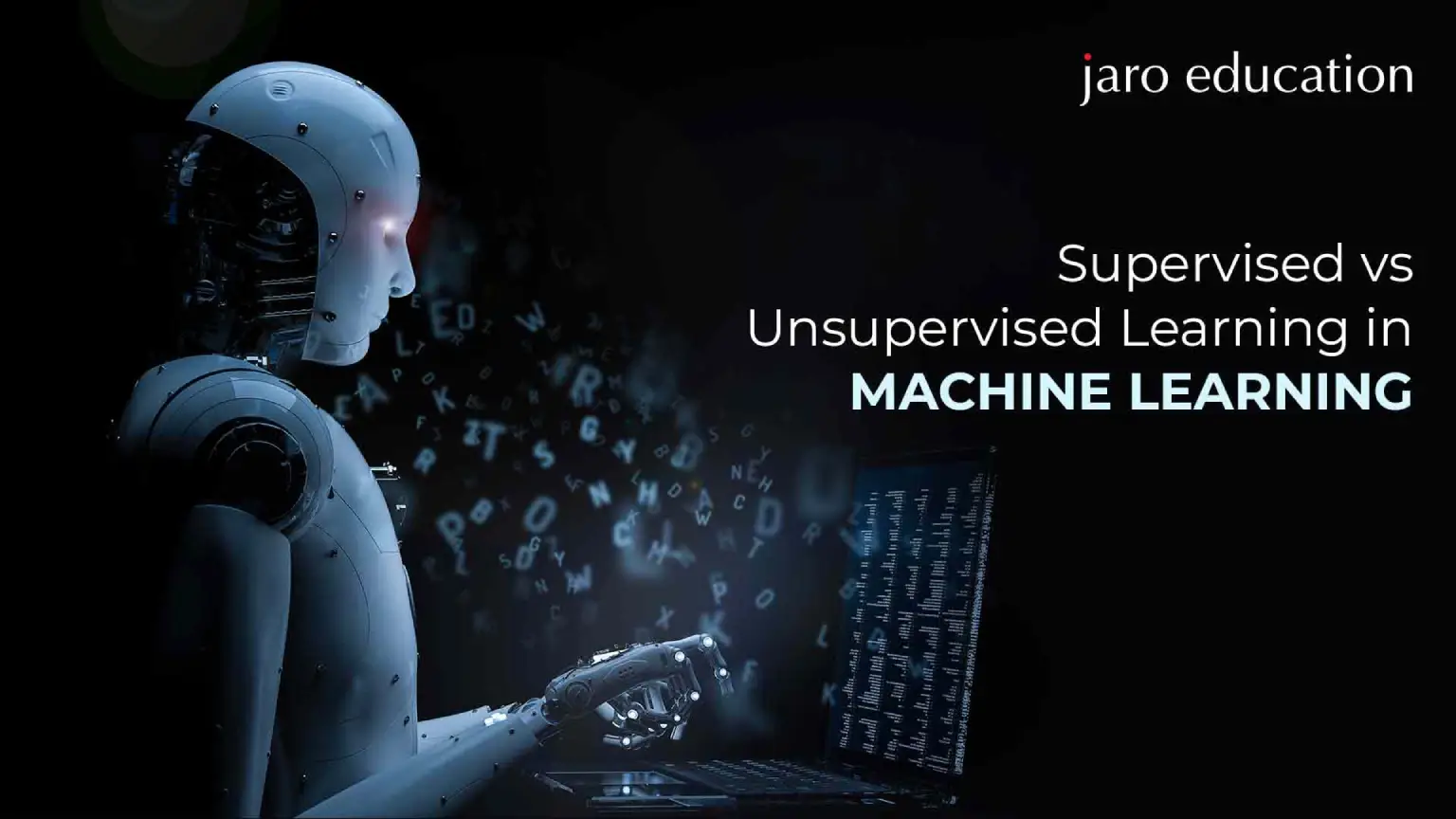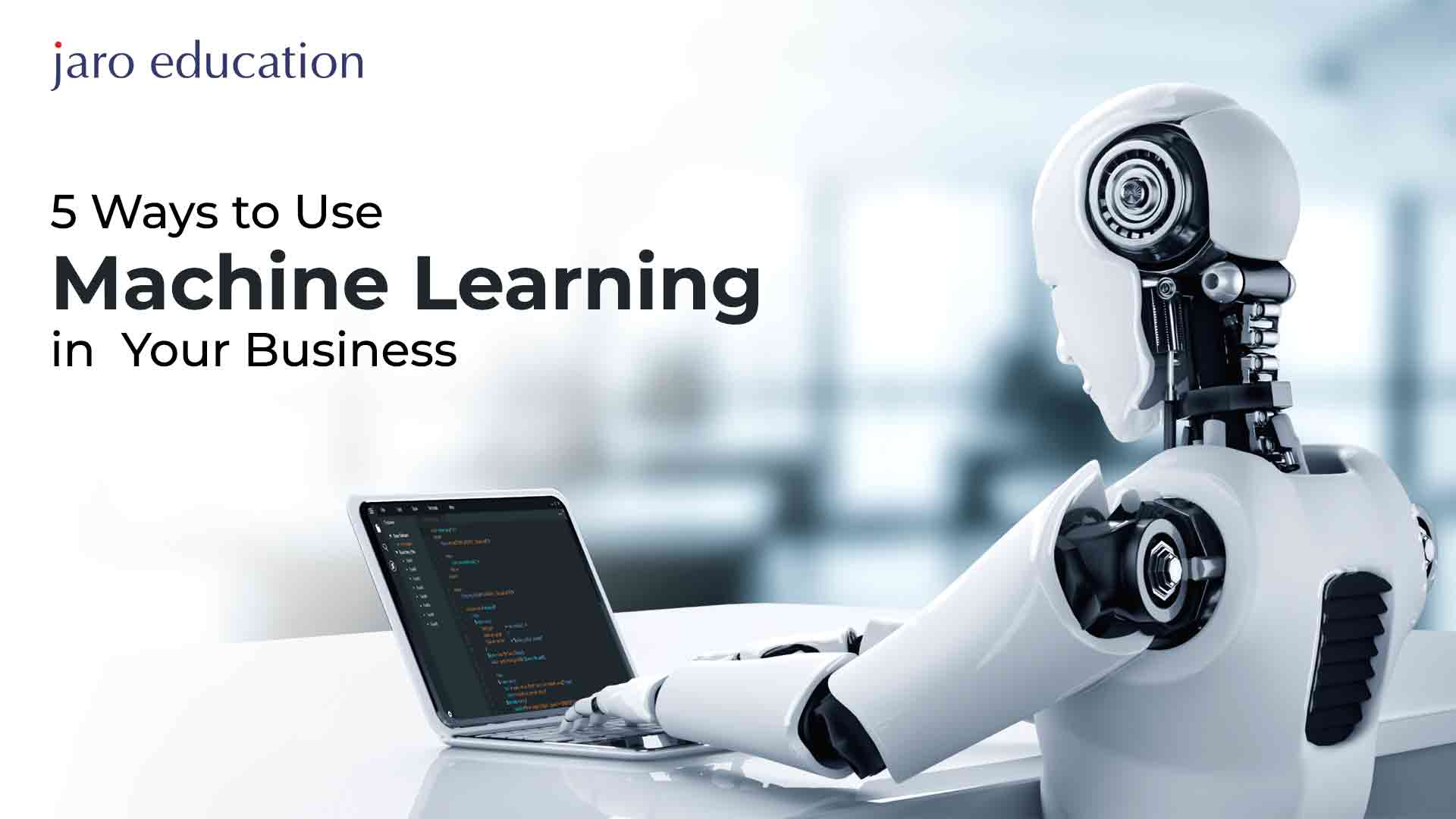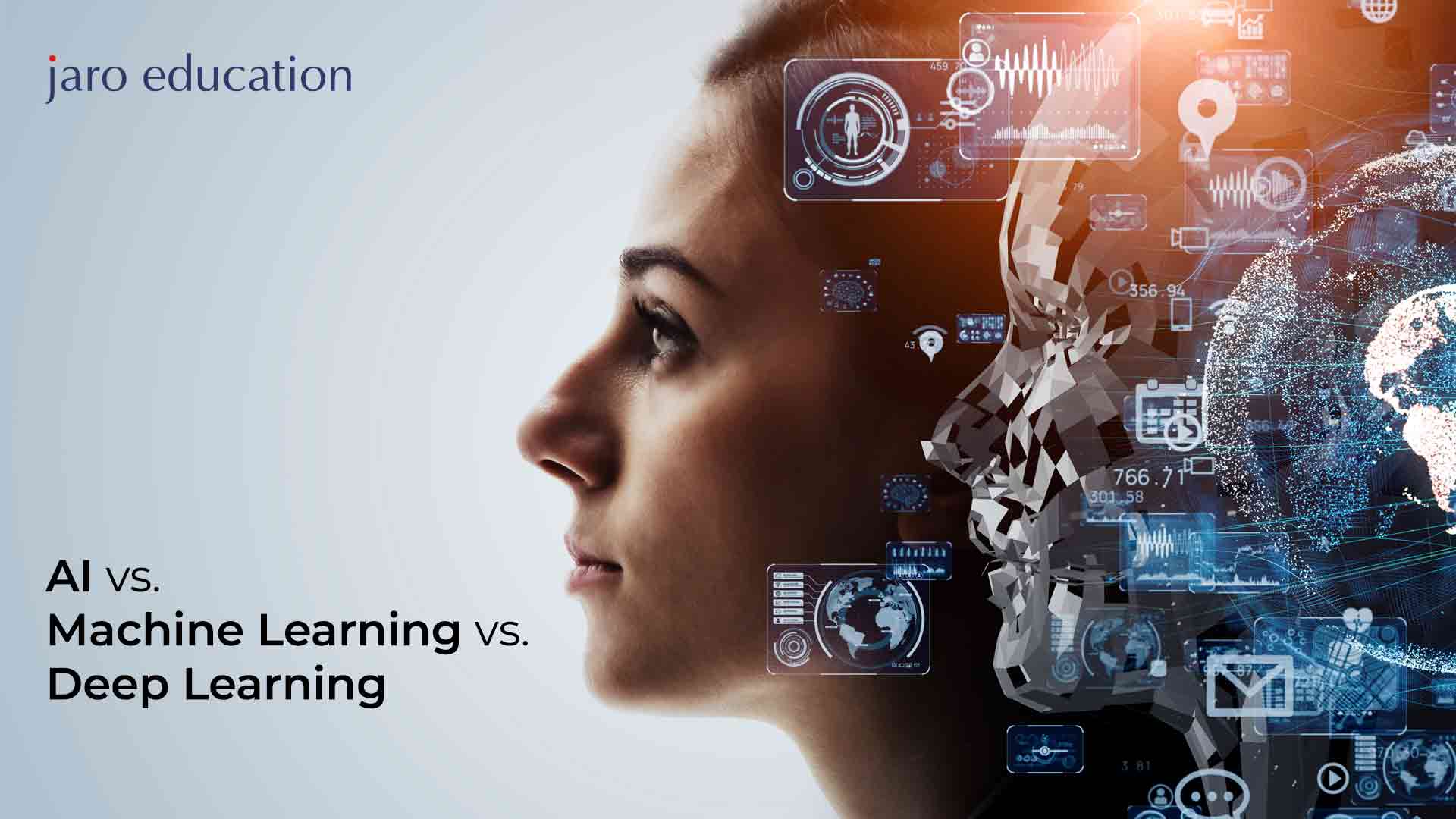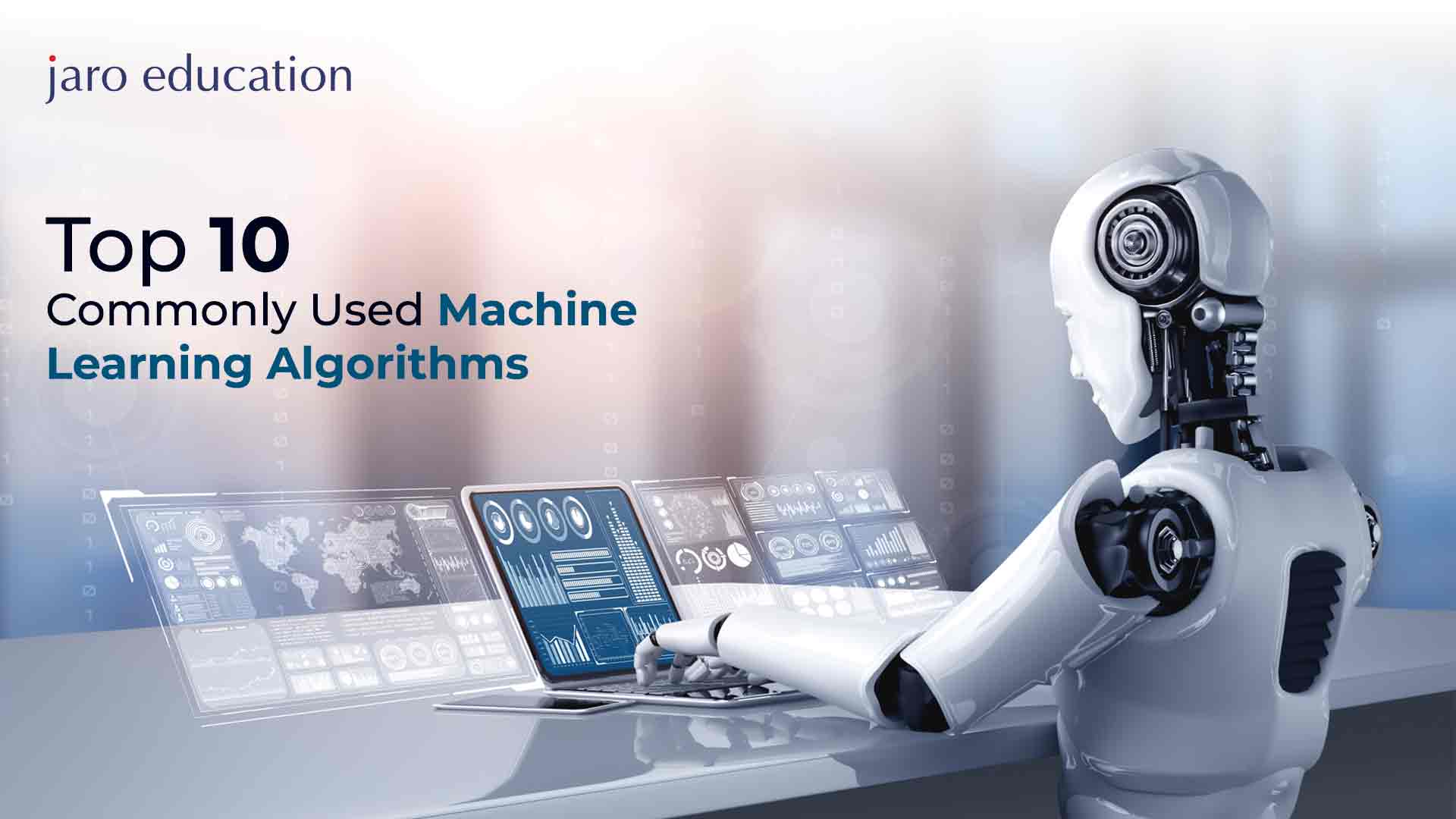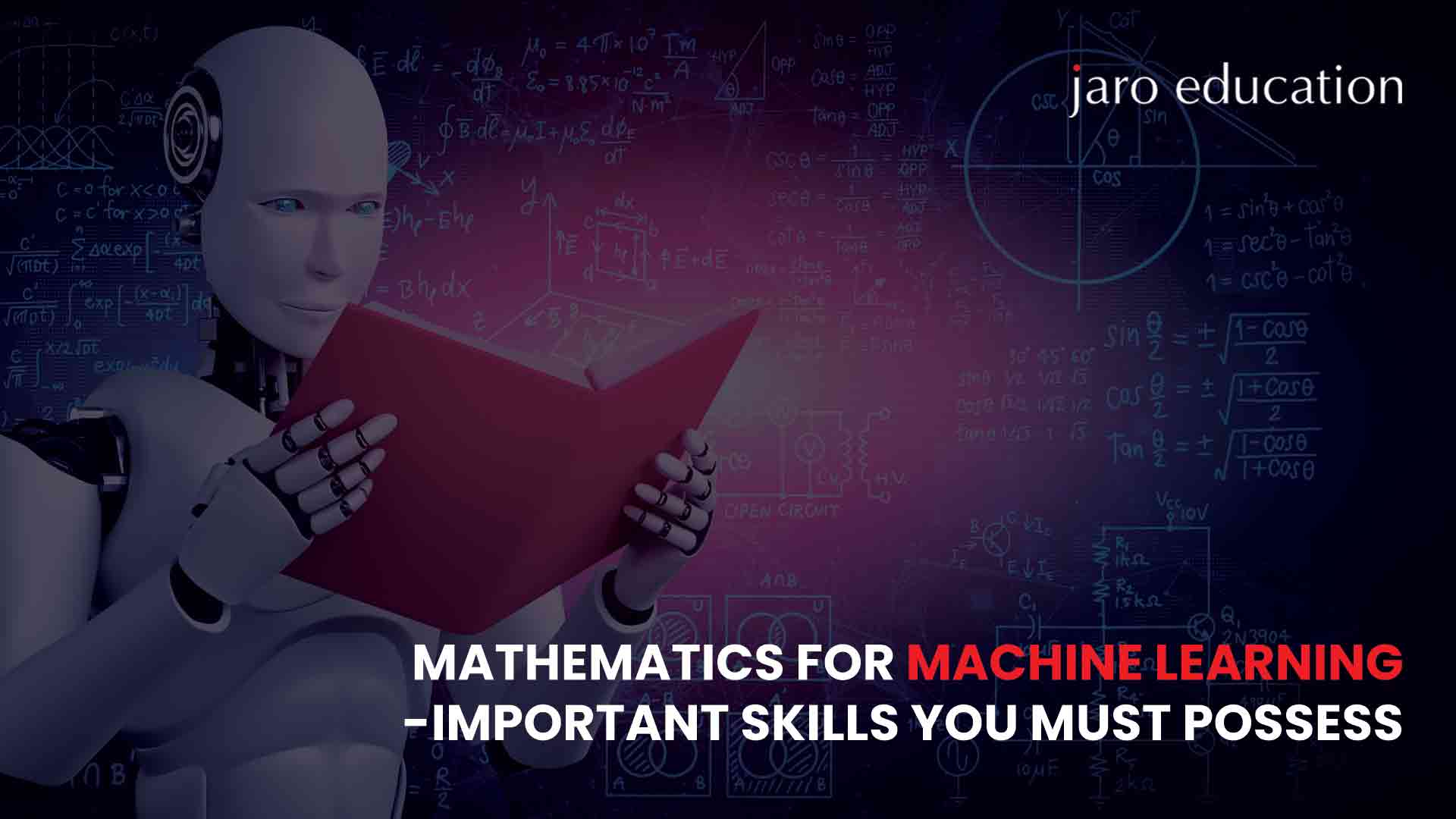
- jaro education
- 7, March 2024
- 2:00 pm
Mathematics is fundamental to machine learning. Strong mathematical skills allow a deeper understanding of machine learning theory, algorithms, and applications. The key topics to master mathematics for machine learning include linear algebra, calculus, probability, statistics, and numerical methods. Linear algebra provides the basis for working with datasets as matrices and vectors. On the other hand, calculus enables optimising and analysing ML model performance. With these, probability and statistics help in statistical modelling and making data-driven predictions.
Numerical methods are used for implementing and programming ML algorithms. Investing time in sharpening mathematical fundamentals will provide the analytical capabilities needed to advance in the machine learning field. Mathematical rigour and quantitative thinking are cornerstones of mastering both the theoretical concepts and practical application of machine learning techniques. A solid mathematical foundation empowers impactful work across the many roles in this dynamic field.
Why Mathematics is Crucial for Machine Learning?
Unlike early expert systems that relied on hard-coded rules, machine learning algorithms can learn complex behaviours and patterns from data. However, this flexibility comes at the price of requiring rigorous mathematical analysis to understand their workings and ensure proper outcomes. Specifically, mathematics empowers machine learning practitioners to:
Table of Contents
- Select appropriate algorithms based on accuracy metrics, time and space complexity analyses, convergence properties, and other formal characteristics.
- Choose the right data features, transformations, embeddings, and representations by leveraging mathematical tools like principal component analysis, transforms, vector calculus, topological data analysis, and more.
- Set algorithm hyperparameters like learning rate, regularisation strength, neural network structure, number of clusters, neighbours, and so on by understanding how they impact optimisation and generalisation mathematically.
- Debug issues like overfitting, underfitting, oscillations, vanishing gradients, and more by analysing model capacity, loss surface geometry, parameter updates, and other mathematical factors.
- Quantify bias, variance, confidence intervals, uncertainty, robustness, sensitivity, and other properties through statistical, information-theoretic and geometric mathematical techniques.
- Create new algorithms and architectural innovations by deeply understanding mathematical optimisation, generalisation, representation learning, uncertainty modelling, and other theoretical foundations.
- Apply machine learning successfully to real-world situations by leveraging mathematics to reason about appropriate assumptions, data needs, model validation, safety, ethics and more.
Important Skills For Machine Learning
Here is a list of essential mathematics for machine learning skills that you need to master to ace in machine learning.
Linear Algebra
The Cornerstone linear algebra provides the fundamental language and tools to work with multi-dimensional data. It underpins nearly every aspect of machine learning. Vectors and matrices are the basic units of linear algebra and are ubiquitous in machine learning. They represent data points while matrices contain features. Matrix operations like multiplication, inversion, decomposition and factorisation are workhorses for data analysis. A solid grasp of vectors, spaces, basis, rank, dimensionality and matrix transformations is essential for success in machine learning.
Matrix Decomposition
This is a key technique in linear algebra that reveals hidden patterns and reduces dimensionality through projection onto lower spaces. Methods like LU, QR, SVD and eigendecomposition decompose a matrix into simpler constituent matrices. These techniques empower methods like principal component analysis, one of the most popular unsupervised learning methods.
Vector Space
It is a fundamental concept in linear algebra. Vector space provides an abstract mathematical framework to think about transformations of data. Key ideas like span, linear independence, bases and dimension are critical for developing intuition about vector spaces. Besides, having a deep understanding of mathematical vector spaces allows data scientists to reason clearly about data transformations.
Eigendecomposition
Eigendecomposition uses eigenvalues and eigenvectors to perform principal component analysis to identify key components explaining the variance in data. It has countless applications from data compression to quantum mechanics. Eigendecomposition gives the best matrix approximation for dimensionality reduction. The key insight is that eigendecomposition rotates the axes of space to align with directions of maximum variance. This powerful technique makes eigenvalues and eigenvectors indispensable analysis tools.
Probability and Statistics
Probability and statistics are crucial maths skills for machine learning. Understanding probability lets you model the randomness inherent in real-world data. Descriptive statistics like averages and graphs summarise data concisely to reveal patterns. Statistical testing checks if apparent relationships in data are real or just down to chance.
Specifically, probability distributions like normal, Poisson and binomial model patterns in data. Sampling the distributions simulates datasets. Comparing distributions with information theory helps choose models. Bayes’ theorem combines prior knowledge with data for predictions.
Overall, probability and statistics allow machine learning models to deal with disorder, disruption, and uncertainty in actual data.
Statistical Inference
Using statistical inference allows for making reliable inferences from finite data samples by estimating model parameters using maximum likelihood and Bayesian techniques. Determining the validity of data acquired from samples requires hypothesis testing utilizing p-values, confidence intervals, and significance levels. By using statistical inference, more general inferences can be drawn using the knowledge gleaned from data samples.
Regression Analysis
It includes methods that model the relationship between independent and dependent variables. Linear regression fits a hyperplane while nonlinear regression fits a curve defined by a polynomial or other function. Furthermore, logistic regression predicts categorical outcomes based on logistic or sigmoid functions. Also, Regressions are fundamental predictive modeling tools that are workhorses across many domains including finance, social sciences and biology.
Calculus
Calculus enables the optimization of machine learning algorithms by allowing the finding of minima of cost functions for regression and neural networks using techniques like gradient descent and backpropagation. Multivariate calculus generalizes these concepts to higher dimensions which is necessary for most machine learning scenarios.
Differential Calculus
It deals with analysing how functions change. The derivative quantifies the rate of change of functions and provides the direction of the steepest ascent or descent. Computing the gradient gives a multi-variable generalization. Finding where the derivative is zero gives optima and inflection points. Partial derivatives are essential for optimizing multivariable cost functions in machine learning.
Integral Calculus
It determines the area under curves which is useful for formulating loss and risk functions. The fundamental theorem of calculus links differentiation and integration. Neural networks rely extensively on integral calculus to accumulate derivatives across layers during backpropagation. derivatives.
Multivariate Calculus
Integration is useful for determining the cumulative impact of small changes optimized by multivariate calculus. This enables computing partial derivatives and multiple integrals over high dimensional spaces which is extremely useful for machine learning. Complex multivariable functions can be optimized with the help of gradients, Hessians, divergences, curls, and Laplacians. Many machine learning models make use of multivariate functions that include millions or even thousands of parameters. The key to optimizing these models is to master multivariate calculus.
Mathematics empowers machine learning practitioners through fundamental tools like vectors, matrices, calculus, probability, and statistics. These domains enable clear thinking, rigorous analysis, uncertainty quantification, model optimization, and extracting deep insights from data. Building mathematical maturity is a lifelong journey but the foundations provide enormous leverage.
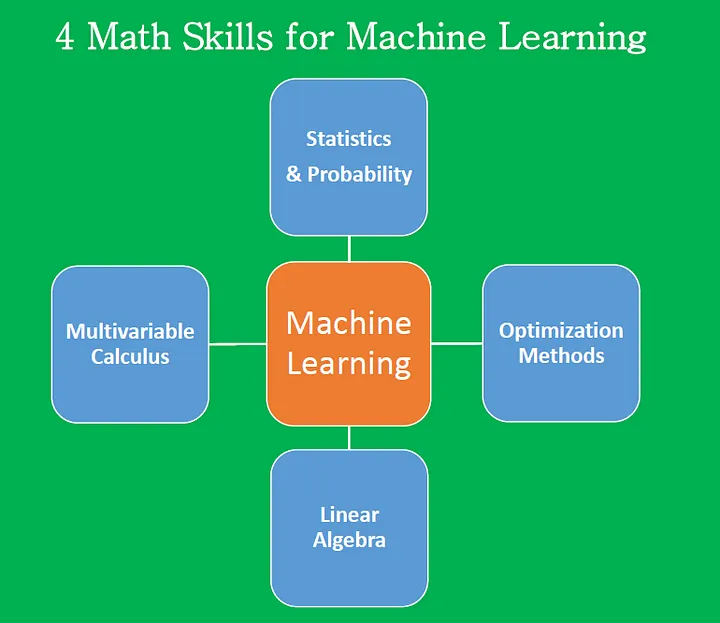
*pub.towardsai.net
Apart from the above mathematical skills, you should also have good expertise with the topics mentioned below, to understand the use of mathematics in machine learning
Arrays
Arrays are foundational data structures to store and access sequential data efficiently. It is crucial for holding training data, model parameters, activation outputs, etc., in organized memory. Furthermore, it enables vectorized operations critical for ML performance.
Linked Lists
It allows the creation of nonlinear sequences by linking elements together via pointers. Useful for dynamic ML models where network structure evolves.
Stacks
Stacks are a last-in, first-out data structure. They are useful for traversal algorithms such as depth-first search, which is used in ML decision trees to trace branches. Stacks also allow backtracking in recursive machine-learning algorithms.
Queues
Queues follow a first-in, first-out structure. It can efficiently handle requests in parallel ML calculations while concurrently updating gradients or model states. It further helps keep data in order.
Sorting Algorithms
ML procedures such as combining sorted lists or obtaining the closest neighbors are made possible by fast sorted access, and there is usage for algorithms such as heap sort, rapid sort, and merge sort.
Binary Search
It helps you to rapidly find locations in sorted data. Binary search also empowers efficient ML searches like locating decision tree split points or retrieving items from large databases.
Heaps/Hashing
Heap data structure useful for priority queues in ML scheduling tasks. Hashing enables constant time lookup, which is ideal for indexing large datasets or model parameters.
Graphs
Graphs are the building blocks of graph neural networks and are also used in generic machine learning representation as nodes and edges. Algorithms like Dijkstra’s traverse graphs.
Sets
Sets are unique unordered collections. They are useful mathematical abstractions for ML concepts like manifolds, Reproducing Kernel Hilbert Spaces, and statistical power sets.
Resources for Learning Mathematics for Machine Learning
Gaining a strong foundation in mathematics is crucial for mastering machine learning concepts and being able to implement machine learning algorithms. Here are some excellent resources across different formats to build up your mathematical skills:
Books
Find textbooks that cover core topics like linear algebra, multivariable calculus, probability, statistics, and numerical methods. You should go for books that connect the theory to machine learning applications.
Online Courses
Search for organized video lectures offered by academic institutions and online learning environments. Let your learning go at your own speed. Try to find math classes that concentrate on machine learning or certain math topics.
Coding Platforms
You can go for interactive coding environments where you can work through math concepts by applying them to data science and machine learning problems.
Journals
You should read academic journals publishing peer-reviewed machine learning research papers. Reading papers exposes you to how math is applied in ML and builds mathematical maturity.
Blogs/Videos
Read instructional blogs and follow video channels where mathematical concepts are illustrated through images. They are useful for learning mathematics and getting different perspectives.
Thus, spending time across resources like these will solidify the mathematical foundations you need to excel in machine learning. Be patient, work through math slowly, and practice applying concepts. A strong math base will pay dividends.
Navigating Machine Learning with Mathematics
The depth of mathematical maturity required depends significantly on the specific role and goals of the machine learning practitioner. An application programmer using off-the-shelf libraries and frameworks may need just basic skills in linear algebra, statistics and calculus. However, an ML researchers working on advancing algorithms and architectures themselves will require quite rigorous graduate-level proficiency across multiple fields of mathematics.
For most roles, having an appreciation for key concepts spanning major mathematical areas helps gain a well-rounded perspective. This enables a better understanding of ML theory and applications even without specialized mathematical knowledge.
Below data is given to represent the relative importance of different mathematical topics:
- Linear algebra: 35%
- Probability Theory and Statistics: 25%
- Multivariate Calculus: 15%
- Algorithms and Optimisation: 15%
- Other concepts: 10%
analyticsvidhya.com
As we can see, probability, statistics and linear algebra together comprise 50% of the essential mathematical skills needed in machine learning. These form the foundational pillars, along with multivariate calculus for analyzing functions and gradients.
While the required depth of maths skills depends on the specific role, developing an overview understanding of key concepts from the major areas highlighted here empowers more robust work in the machine learning domain.
Conclusion
Mastering machine learning requires a solid grasp of mathematics, including skills in areas like linear algebra and calculus. This foundation is crucial for understanding algorithms, optimizing performance, and contributing to advancements in artificial intelligence. Embracing and refining mathematical skills is not just helpful but essential for success in the ever-evolving field of machine learning.
Sharpen your skills in machine learning, neural networks, computer vision, mathematics for AI and advanced analytics with India’s leading IIT Delhi – Executive Programme in Data Science using Machine Learning & Artificial Intelligence. Taught by world-class IIT faculty, this intensive 6-month online course will equip you to drive innovation through data-driven intelligence. Upskill now to become an industry-ready expert in one of today’s most in-demand domains.

